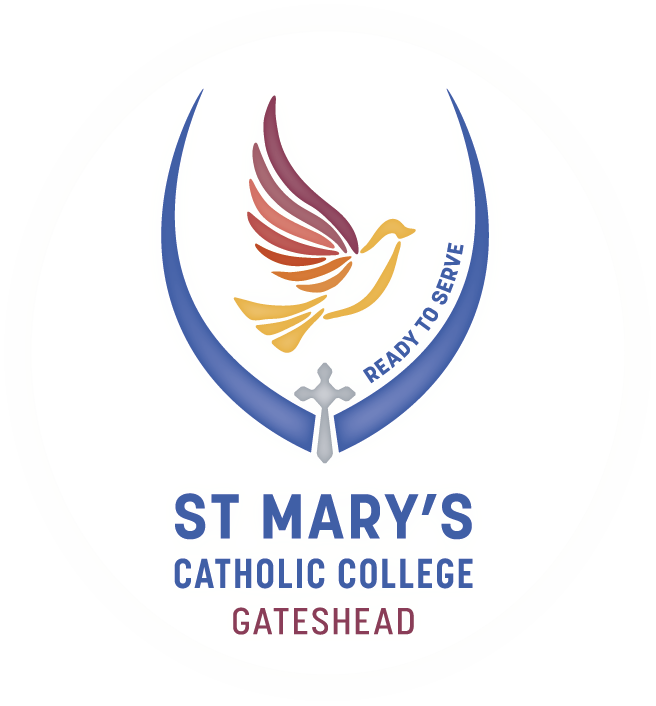Assessment
Assessment is the broad name for the collection and evaluation of evidence of a student's learning. It is integral to teaching and learning and has multiple purposes. Assessment can enhance student engagement and motivation, particularly when it incorporates interaction with teachers, other students and a range of resources.
NSW Education Standards Authority (NESA)
Years 7, 8 and 9 (Stage 4 and early Stage 5)
At St Mary’s Catholic College, assessment in Years 7-9 is formative in nature and is centred on student growth. Evidence of learning includes a variety of tasks, for, as and of learning, that are collated throughout the year by the classroom teacher AND the student (for example, portfolio; process diary; Learning Log.)
Students will receive written notification of any summative assessment tasks before the task being administered.
A Formal Assessment Schedule is only published for students in Year 9 who are undertaking 100 Hour RoSA (Record of School Achievement) Additional Courses. The number of formal assessment tasks in these courses is capped at TWO, with only ONE task allowed for formal examination.
Compass Learning Tasks are also used by some teachers to provide relevant and timely feedback to students and parents in the learning process.
The teacher’s professional judgment is integral to the assessment process. This implies a deep understanding of the outcomes of the course and the use of the standards in the assessment and reporting process. Teachers work collaboratively to develop Learning Intentions and Success Criteria, create benchmarks, review work samples, and identify areas of strength and those students needing additional support. Data is collated by these learning teams – informing each teaching unit/cycle.
Students have responsibility for collating evidence of their learning with an opportunity to nominate assessment pieces they feel demonstrate their achievement of learning outcomes.
At the end of each semester a report is issued identifying an overall level of achievement for each subject studied based on the Common Grade Scale. These grades are awarded to each student based on the evidence collected throughout the learning process. Performance is measured against descriptors for A-E in that subject. Teachers collaborate in this process in professional learning teams.
Year 10 Stage 5
Assessment in Year 10 is still largely formative with no more than TWO formal summative assessment tasks completed by each subject in Year 10 per year. These two tasks per subject appear in a published Assessment Calendar each year and Formal Task Notifications are issued to students at least two weeks in advance. These two formal tasks contribute to the awarding of grades for the Stage 5 RoSA but are NOT the only evidence used to determine grades for the students. The gradual introduction of these formal Summative Tasks leads students towards an understanding of the nature and requirements of Stage 6 assessment.
The assessment and reporting principles outlined above for Stage 4 will also apply.
For Years 9 and 10 RoSA courses, Grades A-E based on the Course Grade Descriptors will be awarded for RoSA and submitted to NESA at the conclusion of the academic year.
Years 11 and 12 Stage 6
As per NESA requirements, there are mandatory components and weightings for the Year 11 and Year 12 courses. The maximum number of formal assessment tasks is THREE in Year 11 and FOUR in Year 12, with only ONE task being a formal examination in Year 11 and Year 12.
- Year 11 – Maximum THREE Formal Tasks (ONE exam only).
- Year 12 – Maximum FOUR Formal Tasks (ONE exam only).
The Year 11 Mid-Course and End of Course Report contains an A-E descriptor against achievement of outcomes and a Cumulative Assessment RANK in Course. Year 11 students receive a Grade A-E based on the Common Grade Scale for Preliminary Courses. These grades are then submitted to NESA as part of the RoSA accreditation process.
The Year 12 Half Yearly and End Of Course Reports contain an A-E descriptor against achievement of outcomes and a Cumulative Assessment RANK in Course. HSC Internal Assessment Marks are submitted to NESA each year in September.
Additional Reference: https://www.educationstandards.nsw.edu.au/wps/portal/nesa/k-10/understanding-the-curriculum/assessment/assessment-principles
